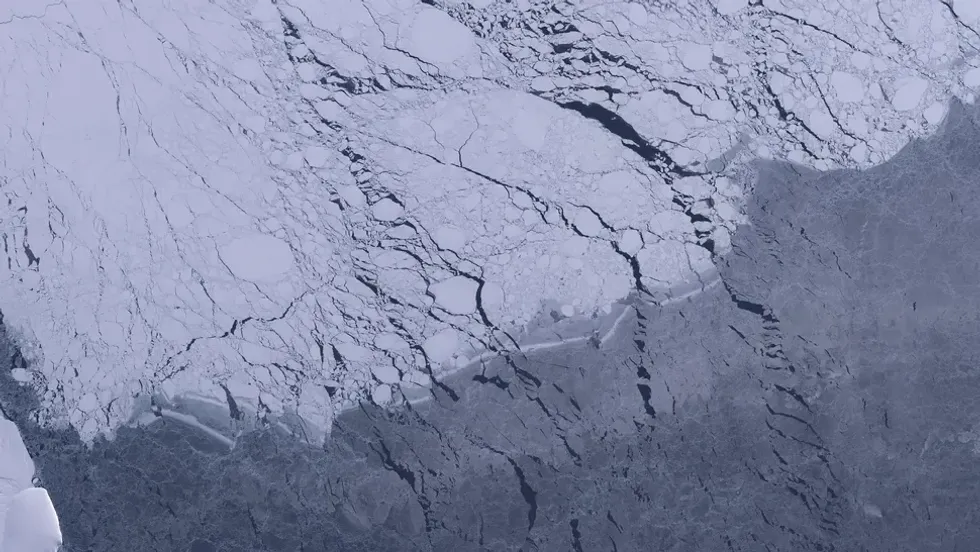Science & Tech
Gregory Robinson
Jan 17, 2025
Antarctica: Coast Guard Divers Brave Antarctic Waters for Critical Ship Repair
StringersHub / VideoElephant
One of Antarctica's largest ice shelves may be under threat due to 'warm water' from the deep sea flowing towards it.
If the Filchner-Ronne Ice Shelf (FRIS) melts, it could dramatically increase sea levels. This is a huge concern because raised sea levels can lead to devastating impacts on coastal communities and can disrupt of ecosystems, among many other environmental issues.
FRIS is in the southern Weddell Sea and is roughly the size of Sweden. It currently appears to be stable amid climate change, however Live Science reports ocean modelling in the past has shown the ice shelf’s integrity could be threatened by relatively warm water from the deep sea.
A study published in November 2024 in the Journal of Geophysical Research: Oceans found that water flows more rapidly toward the shelf during warmer years. Researchers believe this could be linked to reduced sea ice cover and if this is the case, a significant decline in sea ice could cause FRIS to melt, Eos reports.

“If the warm water reaches underneath the ice shelf, it would melt the base of the ice shelf," the study’s first author, Nadine Steiger, told Live Science. Stinger is a physical oceanographer at Sorbonne University.
Researchers still have a lot to learn about this region, and it is currently unclear if the increased flow of water water is linked to climate change. If a huge ice shelf like FRIS melted, it would lead to a huge sea level rise.
Thick ice and cold seawater protects FRIS by flowing over the underwater continental shelf around the coast of Antarctica in the Weddell Sea. During the summer, warmer water comes onto the continental shelf from the open ocean and travels toward the ice shelf through a channel known as the Filchner Trough, the study explains.
Researchers have highlighted the importance of long-term observations of this region to better understand and predict future changes to ice shelves. However it is currently understood that warmer water flowing towards FRIS would be very alarming, but the ice shelf completely melting away is unlikely to happen any time soon.
How to join the indy100's free WhatsApp channel
Have your say in our news democracy. Click the upvote icon at the top of the page to help raise this article through the indy100 rankings
Top 100
The Conversation (0)














